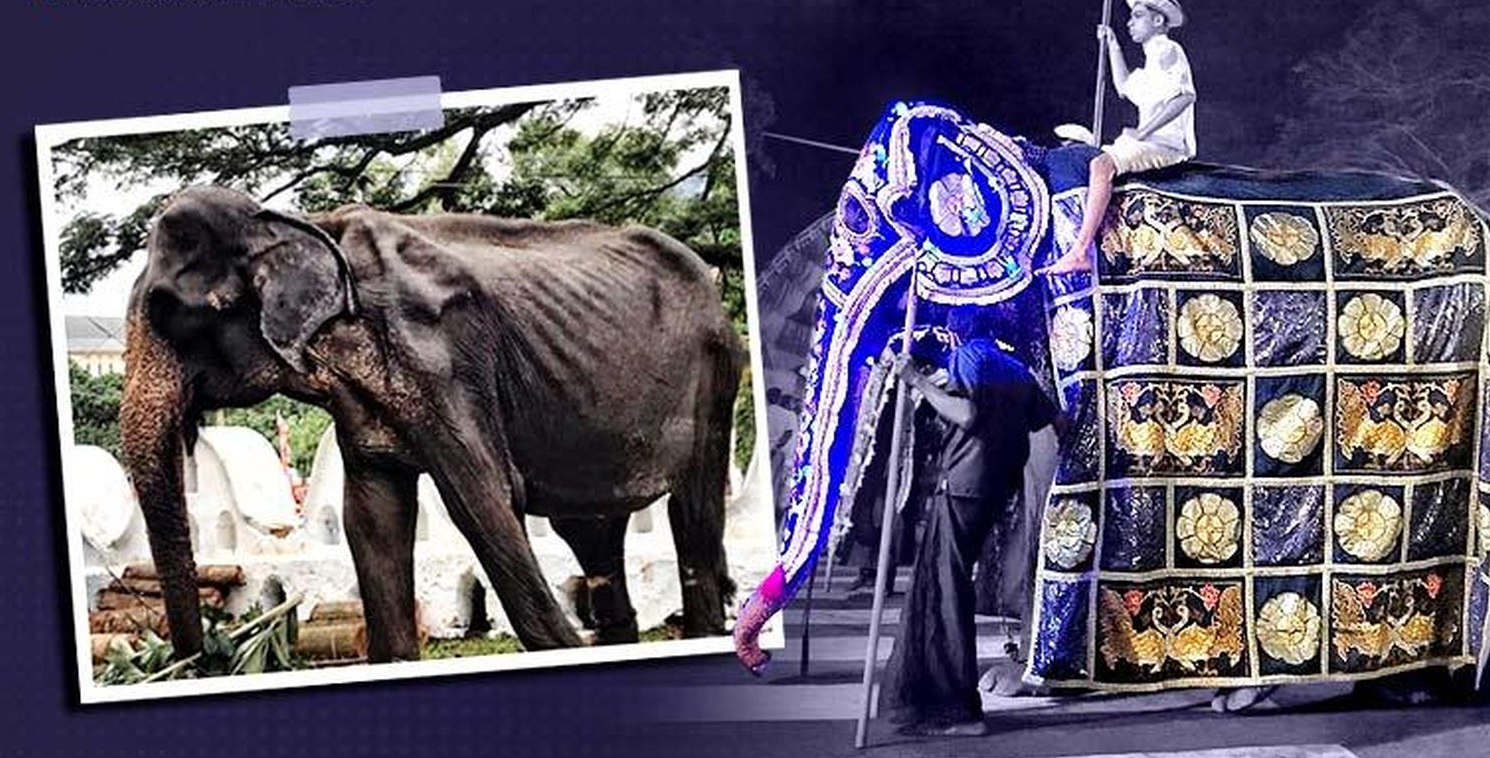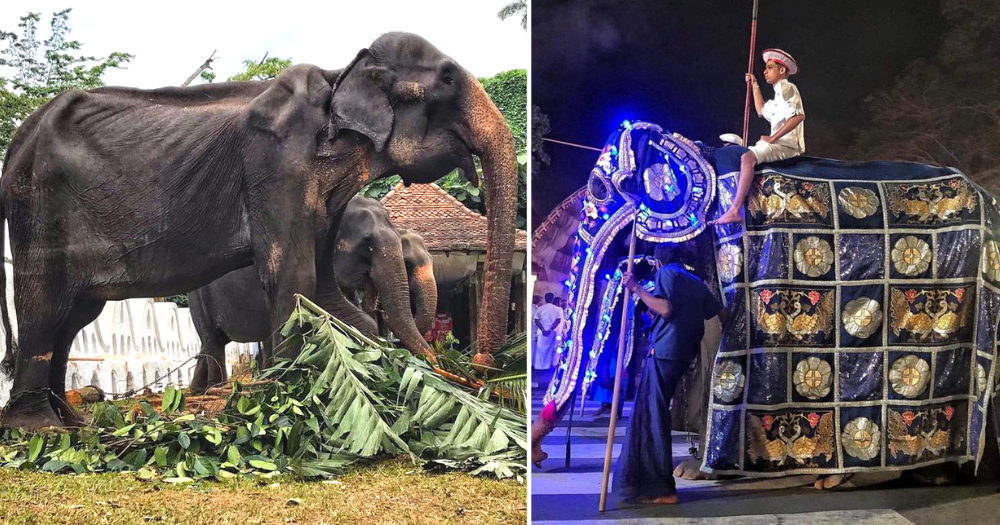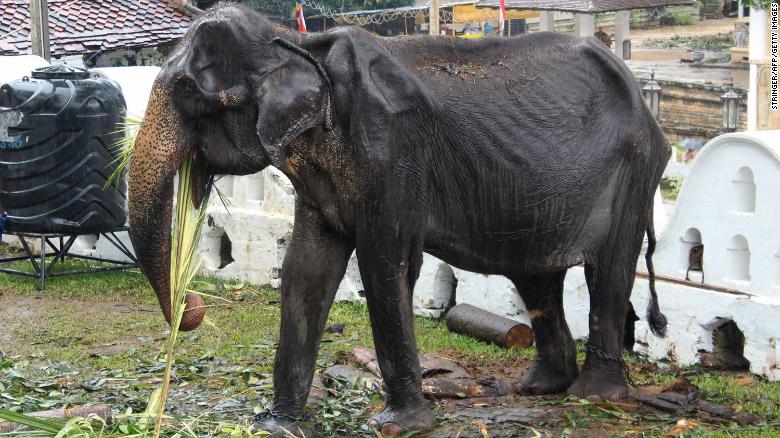
KANDY, Sri Lanka – Thai nonprofit organization Save Elephant Foundation called attention Tuesday to the plight of an ailing, emaciated 70-year-old female elephant who allegedly “must work in the service of the Perahera Festival in Sri Lanka this year,” according to a Facebook post from the organization.

The organization shared photos of the elephant, Tikiri, who they say is kept at the Tooth temple in Kandy, a large city at the center of the country. The photos reveal Tikiri’s emaciated body, which Save Elephant Foundation says no one sees during the ceremony due to the elaborate costume adorned with bright lights that she is made to wear.
Tikiri is one of 60 elephants who must work at the annual festival, and she is made to walk in a parade every night for 10 consecutive nights, navigating through noisy crowds, fireworks and smoke.

“She walks many kilometers every night so that people will feel blessed during the ceremony,” Lek Chailert, founder of Save the Elephants wrote. “No one sees the tears in her eyes, injured by the bright lights that decorate her mask, no one sees her difficulty to step as her legs are short shackled while she walks.”
The Esala Perahera, which ran from Aug. 5 through Aug. 15 this year, is one of the oldest and most elaborate of all Buddhist festivals in Sri Lanka, which is a majority Buddhist country. The festival honors the Sacred Tooth Relic, believed to be one of the Buddha’s teeth that was gifted to the Sri Lankan monarchy long ago, which gets carried in a golden casket atop the back of an elephant during the Perhahera festival.

In her Facebook post, Chailert pointed out the spiritual conflict that arises when animals suffer in the name of celebrating a Buddhist festival. One aspect of the Buddha’s teachings centered on the idea of doing no harm, and this includes toward animals.
“For a ceremony, all have the right to belief as long as that belief does not disturb or harm another. How can we call this a blessing, or something holy, if we make other lives to suffer?” Chailert argued.
“What is the heart of our religion? Mercy, right?” translates a part of Chailert’s post that was written in Thai, “The world will live in peace if we care and care for others.”